My Playstation 4 console boots up and I’m eager; it’s July 2015. My still somewhat young PS4 is thirsty for games. So I’m eager to see what this month’s PS Plus games are all about. A promising new game called Rocket League is “free” this month and honestly, it looks like loads of fun! I mean, rocket-propelled car soccer? Why has nobody ever thought of this before? After only a couple of matches, there was no denying that Rocket League was the most fun I’ve had with a game in years. Maybe…ever? It just clicked. The timing of the release, the simple yet deep gameplay, and the fact that it was a PS Plus game on its launch day (so lots of people were jumping in at once) all added up to one sum: indie developer Psyonix had a mega-hit on its hands and Sony looked like the smartest guys in the room launching this pick-up-and-play gem on their premier service. It was an extremely important move that helped buoy Sony’s machine between tentpole releases Bloodborne, which was released earlier in 2015, and Metal Gear Solid V, which would be released later that fall.
Looking further back at the launch of the PS4 we see another example of this. At Sony’s Playstation 4 reveal event in early 2013, they pulled back the curtain on, not only the next-generation console but also, the first-party AAA games which you would be playing on day one. It was a promising lineup! Killzone: Shadowfall from Dutch developer Guerrilla Games, Driveclub, an ambitious new car simulator, and Infamous: Second Son all looked to dazzle when you unboxed your PS4 on day one. Turns out that only 1 of those 3 made it to the party.
Sony’s Embrace of Independent Developers
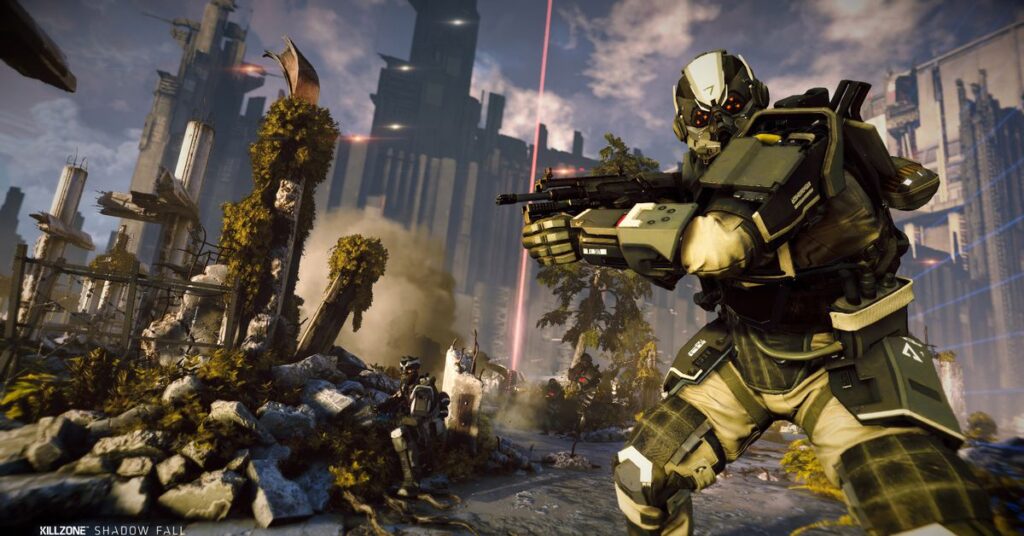
Guerrilla’s Killzone: Shadowfall launched on day one to good-not-great-reviews. Infamous: Second Son wound up missing the launch by a few months and Driveclub was a hot mess when it finally released a year later. Thankfully, Housemarque, a small Finish studio which Sony had established a good relationship with during the PS3 years, had a game ready to roll on launch day for the PS4. They delivered a 2D side-scrolling arcade shooter not unlike their past efforts, but it was clear that Resogun was their best work to date. It was a smash sensation thanks to being paired with Sony’s aforementioned PS Plus service. Infamous wasn’t the buzz of the industry and Killzone surely didn’t astound anyone. It was Resogun that was on everyone’s lips. Who knows how differently the Playstation 4’s future would have unfolded without the presence of Resogun? Perhaps not that much, but it was clear: Housemarque’s first entry on the platform was a software staple that helped fill a void where Sony’s bigger first-party games were meant to be.
Resogun wasn’t the only indie game that sniffed out early success on the PS4. Sony had attracted indie darling Jonathan Blow, who was previously known for the mind-bending Xbox Live Arcade smash, Braid, to work on his next masterpiece: The Witness. Supergiant Games, creators of Bastion, were bringing their new game Transistor to Sony’s platform. And I’ve already mentioned Rocket League. Something was brewing at Sony. Where were all of these indie devs coming from?
You see back in the early days of the Playstation 4, there was an executive by the name of Adam Boyes who was VP of Publisher and Developer Relations from 2012 – 2016. It was Boyes who cultivated a culture of outreach to any developer, regardless of size. He assembled a savvy team (including former EGM/1UP.com writer and general indie game guru, Nick Suttner) to deliver personalized service and assistance to what were sometimes only one-man dev teams. This commitment to going the extra mile to ensure good, healthy relationships with small developers was becoming infectious and word was getting out. Soon, the PS4 was inundated week after week with promising new indie titles that didn’t just offer a fleeting spin or hook but were presenting fresh gameplay ideas and/or new aesthetics that had never been explored in games before. Combine this with the easier development requirements of the PS4 and Sony had a very tempting piece of hardware on its hands that made it hard for developers to ignore.
The Allure of the Nintendo Switch for Indie Devs
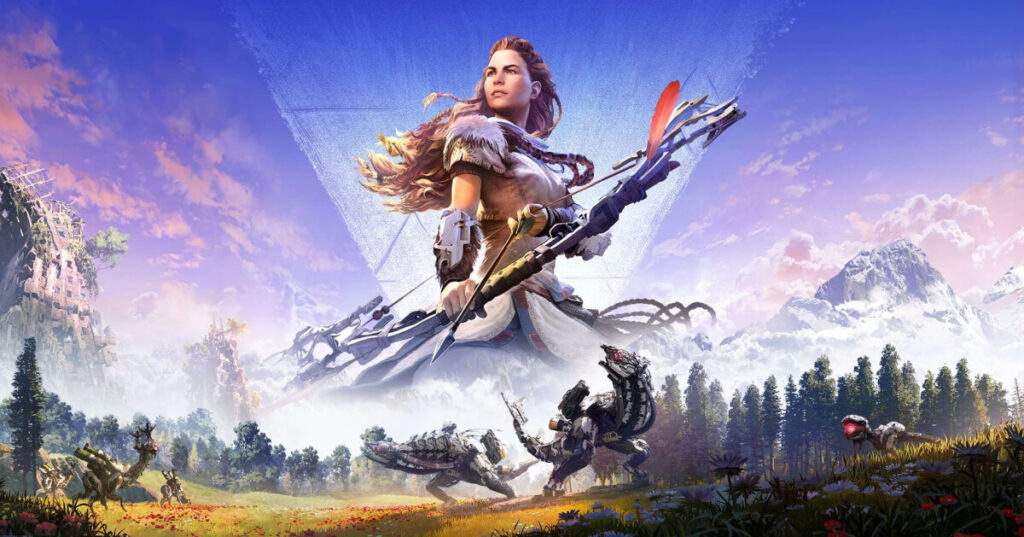
After a couple of years, Sony finally got their big-budget games machine rolling. First, it was Uncharted 4 and Ratchet and Clank. Later, it was Horizon Zero Dawn, God of War, and Marvel’s Spider-Man. All of these titles not only saw critical success, but each was a smash hit for Sony. Boyes even got on the E3 stage and announced the holy grail of remakes, Final Fantasy VII, was coming exclusively to PS4. Sony was on a roll.
During that run of hits, Boyes decided to pivot his career and become the CEO of indie developer, Iron Galaxy. I believe that when Boyes left Sony, the culture of outreach to smaller devs went with him. In March 2017, Nintendo launched the Switch: a hybrid console that could be both a dedicated handheld and a living room console connected to your big screen. Gamers around the globe were enamored with Nintendo’s new system, and for good reason! It just…worked! Being able to play your way wherever you are with big-budget games like Breath of the Wild and Super Mario Odyssey was a dream come true.
Everyone was falling in love with the Switch, including indie developers. A similarly warm approach to developer relations was employed by Nintendo and honestly, they didn’t have to try hard. Small developers were coming in droves to the Switch thanks in part to the perfect marriage that the platform presented for their games, the connections they formed with Nintendo, and the fact that they were feeling shafted by Sony who, up until recently, had been a great partner with them.
Balancing AAA Titles and Indie Games
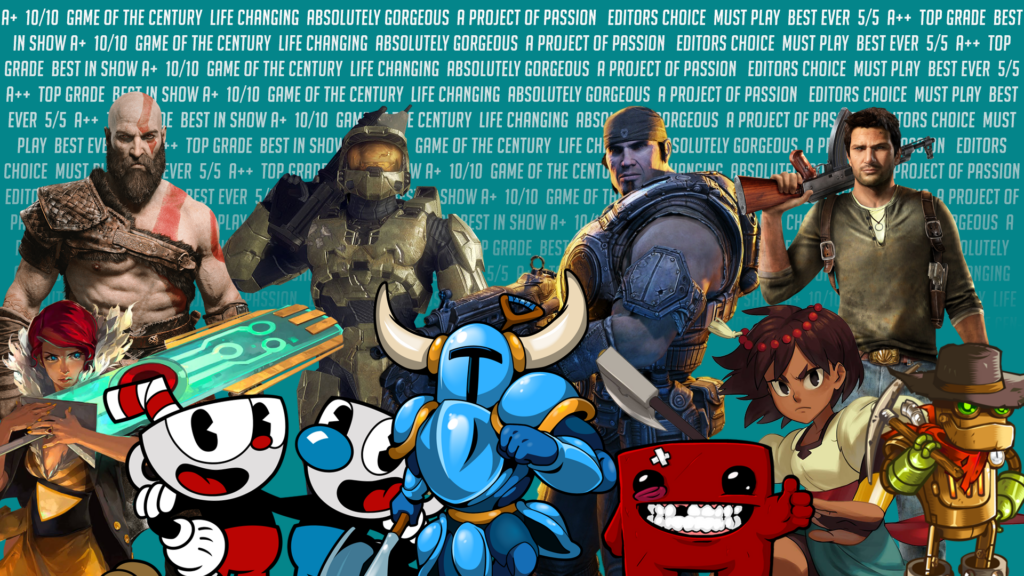
Fast forward to June 2019, when the Wall Street Journal published an article titled “Sony Positions Next PlayStation for Hard-Core Gamers”. In this informative article, Sony executives reveal that moving forward they will be focusing on large software publishers since resources are limited. The thinking is that “people buy a console to play high-quality games available only on that platform, not smaller games also available on smartphones”. The article goes on to detail how some indie developers have recently felt “snubbed” by Sony in contrast to Nintendo. When you look at the timing, it’s a trend that eerily correlates to both the Switch launch and Adam Boyes’ exit from Sony. If Sony is truly “positioning for the hardcore gamer”, they will know that hardcore gamers love Journey and Overcooked just as much as God of War and Uncharted.
Sony has certainly found success with its slate of AAA games this generation. But to ignore the way that indie developers have assisted the PS4, especially in times when there were dry spells in the game release window, comes off as shortsighted. Maybe, truly, it’s not worth it for Sony. But why not both? This is a rare case where Sony can indeed have its cake and eat it too!
The PlayStation division is making money hand over fist for Sony as a whole and they’re telling me resources are so limited that they can no longer meaningfully reach out to small developers. I don’t know how wise that will be in the coming generation. Platforms need indie games. It was true when the Xbox’s Summer of Arcade became a mid-aughts sensation and it’s true now for the Nintendo Switch, a console many can’t imagine playing Hollow Knight without. I am all for Sony putting lots of money and resources into its exclusive titles, but they don’t need to forget this important aspect of what made both the Switch and the PS4 early runaway successes.
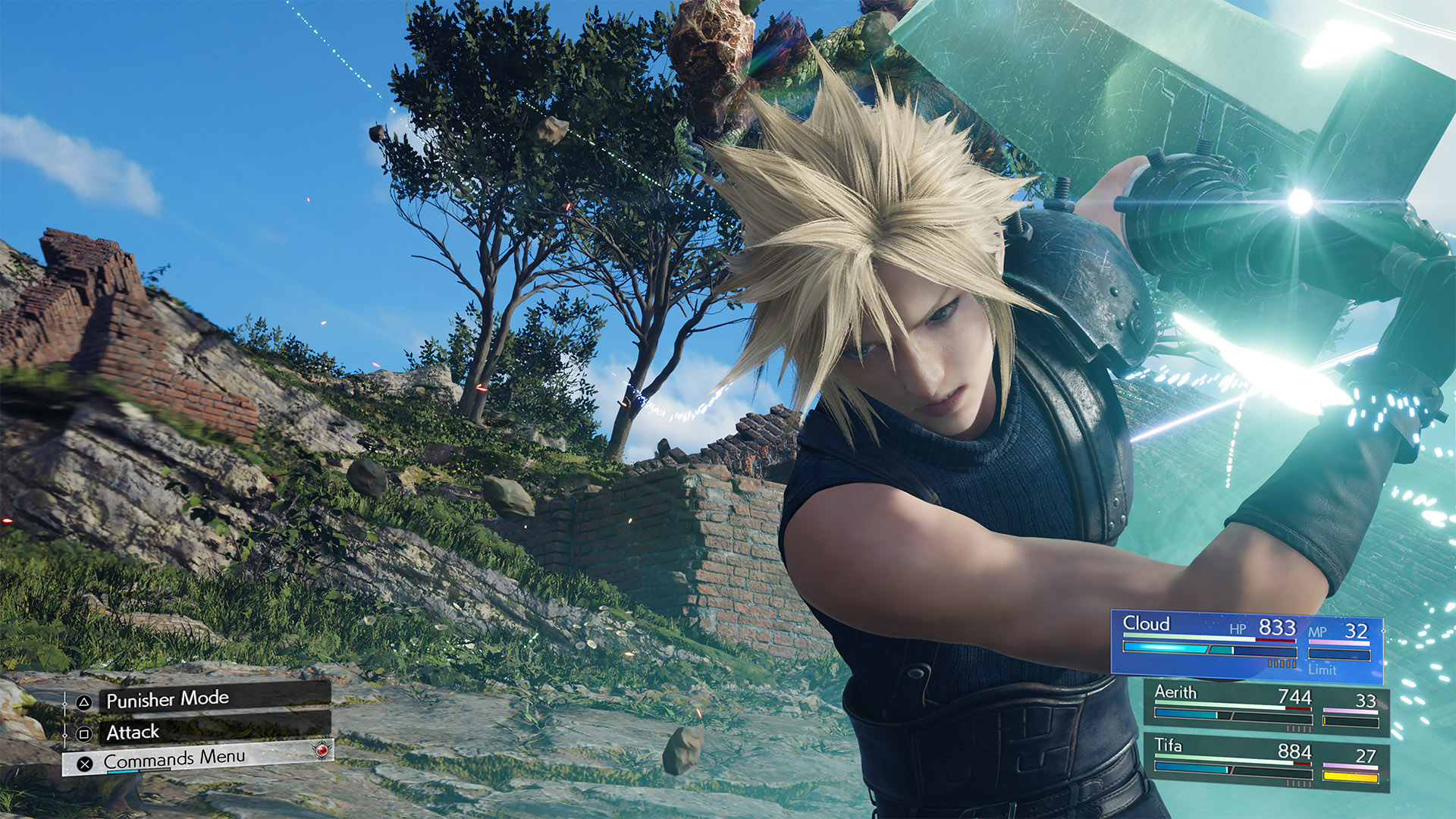
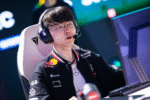


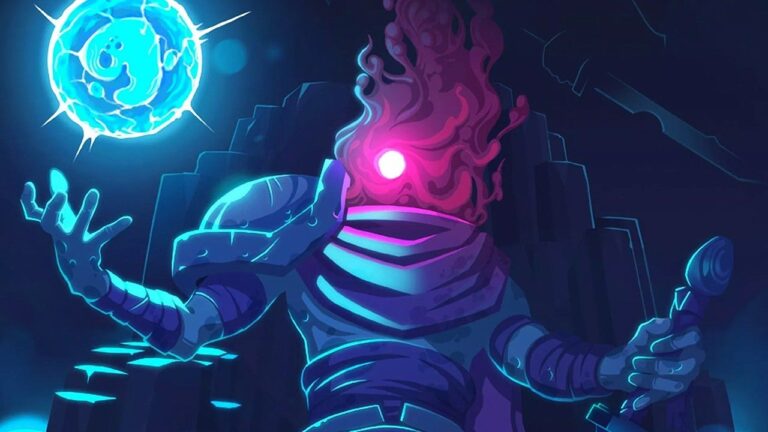
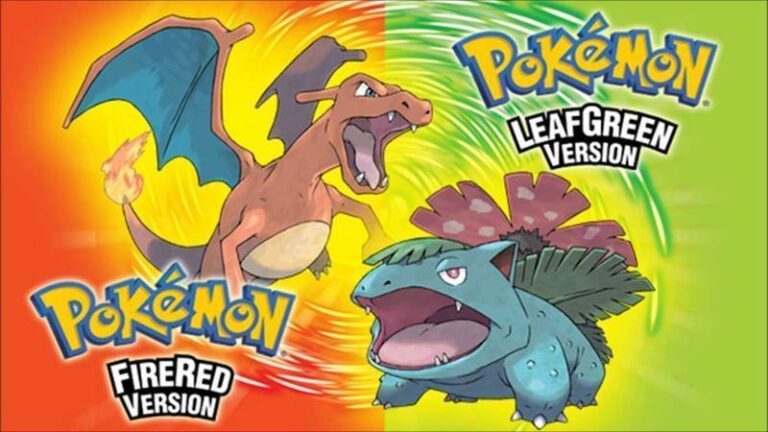
Leave a Comment